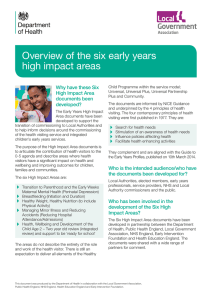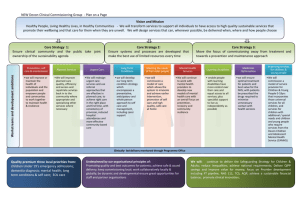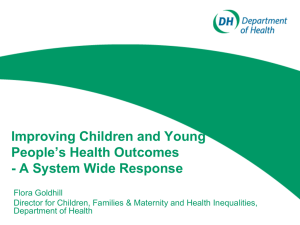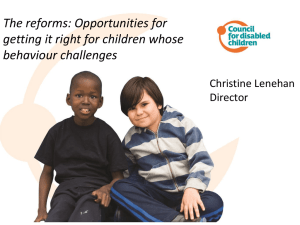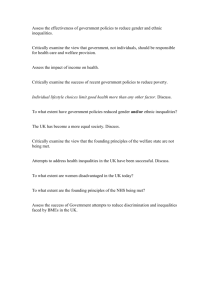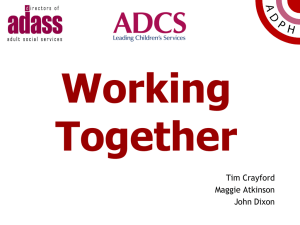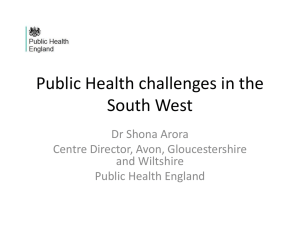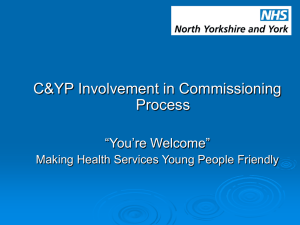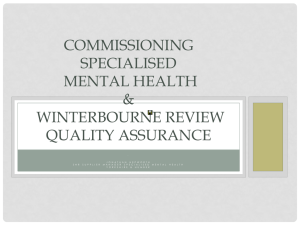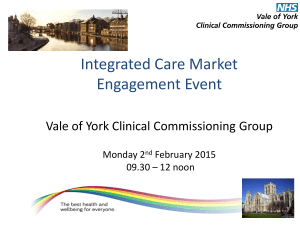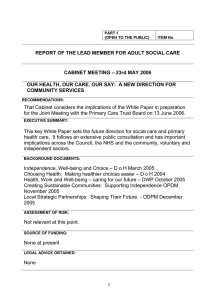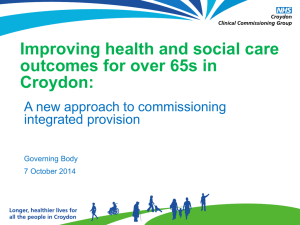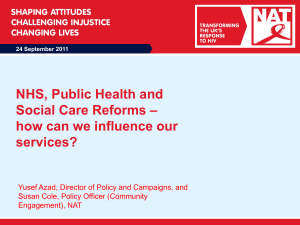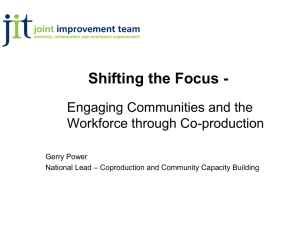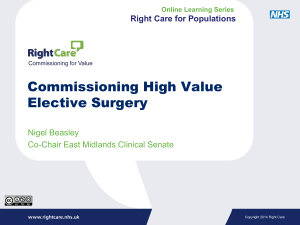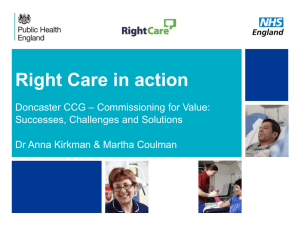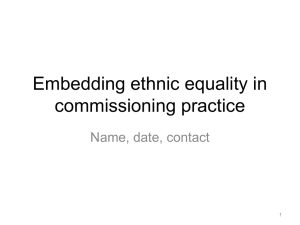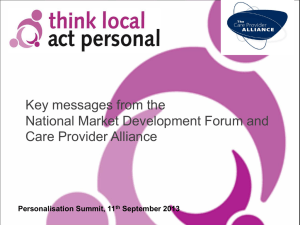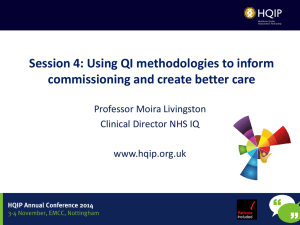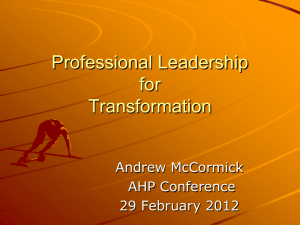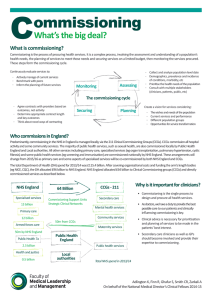Early years Eileen OMara
advertisement
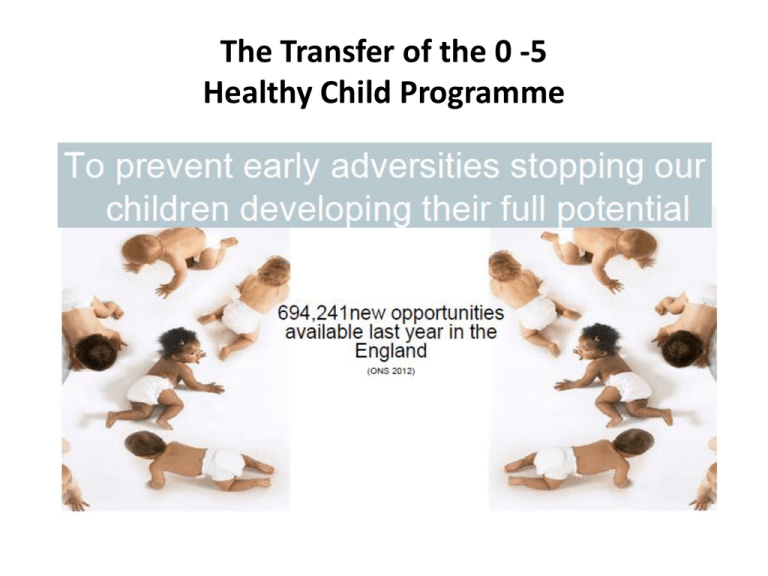
The Transfer of the 0 -5 Healthy Child Programme Why early years services for all? • • • • • • Focusing solely on the most disadvantaged will not reduce health inequalities sufficiently. To reduce the steepness of the social gradient in health, actions must be universal, but with a scale and intensity that is proportionate to the level of disadvantage. We call this proportionate universalism. The National Support Team for Health Inequalities demonstrated it is not enough to have discreet targeted projects we need to have system and scale if we are to improve health. Transition to Parenthood and the first 1001 days from Conception to age 2 is a crucial period that will have an impact and influence on the rest of the life course. Preventing and intervening early to address attachment issues will have an impact on resilience and physical, mental and socioeconomic outcomes in life for mother and child. Perinatal mental illness including postnatal depression is very common (around 1 in 10 mothers will experience depression) There is robust evidence on the impact of maternal mental health during pregnancy and the first 2 years of life, on infant mental health and future adolescent and adult mental health Why concentrate on early years? • The foundations for virtually every aspect of human development – physical, intellectual and emotional – are laid in early childhood • Breastfed babies have better neurological development and are at lower risk of tooth decay, cardiovascular disease and have fewer attachment issues. • Children who are overweight are at higher risk of poor health outcomes such as type 2 diabetes and poor mental health. • Illness such as gastroenteritis and upper respiratory tract infections along with injuries caused by accidents in the home are the leading causes of attendances at A&E and hospitalisation amongst the under 5s • Development checks for speech, hearing, physical ability ,dryness, eating all support readiness for school. • Health visitors have extensive knowledge of child health, child development and parenting and are well placed to assess, predict and identify risk early The Department of Health has confirmed its plans to mandate the following universal elements of the Healthy Child Programme : • • • • • Antenatal health promoting review New baby review 6-8 week health visitor assessment One year assessment 2 to 2.5 year review Not just about 5 mandated checks - 0-5s Healthy Child Programme Performance - local government is not expected to deliver greater than the NHS at the point of transfer. The mandate is time limited for 18 months with a review after 12 months. This will help to ensure there is stability within the service. Opportunities: • Joining up commissioning in local authorities for children’s public health, early help and wider family services • Involving HWB to promote aligned/joint commissioning between LA, CCGs (which commission NHS children services) for services around the child and family • Streamlining universal access to Healthy Child Programme with early intervention and targeted interventions/programmes for families needing more help • Joining up 0 – 5 Healthy Child Programme with 5 – 19 Healthy Child Programme (which is already commissioned by LAs) • Better integration of services at point of delivery with improved access and experience Improved outcomes for children families and communities and reduced inequalities • To recognise the value of a universal service which is the entry gate to the early identification and management of all need in families with preschool children. Safe Transfer • Work with partners to sustain services and ensure safe transfer of contracts. • It is the commissioning that is transferring not the workforce. • Based on resident population not GP registered. • Funding will sit in the ring-fenced public health grant. • LA allocations based on 2015/16 baseline 0-5s expenditure. Aim to maintain stability of service delivery whilst continuing the planned improvements in outcomes and modernisation of the workforce to limit risk to both provider organisations, healthcare professionals, children and their families. Thank You Eileen O’Meara Director of Public Health & Public Protection Halton
